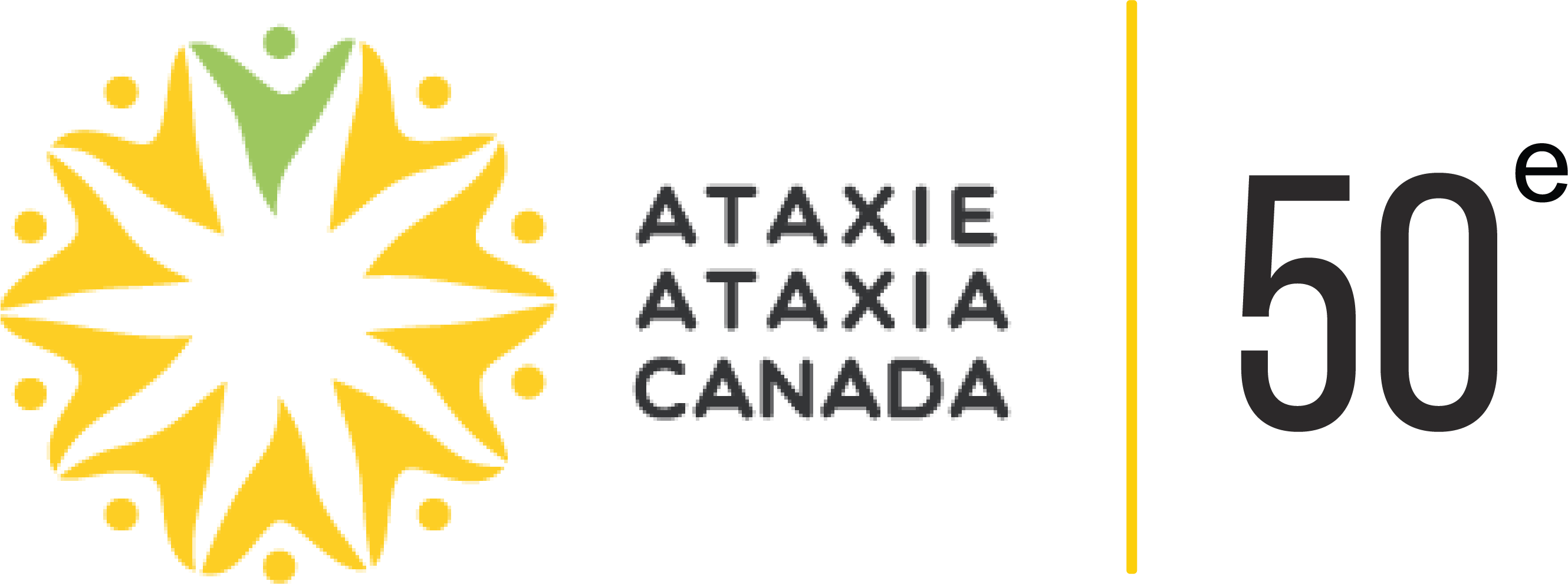What is Ataxia
Ataxia is a neuromuscular degenerative disease that affects the nervous system. Often, people will think that someone with an ataxia is drunk: slurred speech, stumbling, falling, and incoordination.
All these symptoms are related to degeneration of the part of the brain, called the cerebellum, that is responsible for coordinating movement. People affected by ataxia do not have a cognitive impairment they simply have a hard time to control their body movements.
Ataxia is a disease that affects people of all ages. Age of symptom-onset can vary widely, from childhood to late-adulthood.
Complications from the disease are serious, oftentimes debilitating, and can be life-shortening. Familial Ataxia is an umbrella term used to classify a family of diseases and include but are not limited to these diagnoses:
Friedreich’s Ataxia – Spinocerebellar Ataxia – Ataxia Telangiectasia – Episodic Ataxia
Multiple System Atrophy – Sporadic Ataxia – Beauce Ataxia
Symptoms

Symptoms vary by person and type of Ataxia. Symptom onset and progression vary as well. Symptoms may worsen slowly, over decades – or quickly, over mere months. Common symptoms of Ataxia are lack of coordination, slurred speech, trouble eating and swallowing, eye movement abnormalities, deterioration of fine motor skills, difficulty walking, gait abnormalities, tremors, and heart problems. Individuals with Ataxia often require the use of wheelchairs, walkers, and/or scooters to aid in their mobility.
Diagnosis
Ataxia is diagnosed using a combination of strategies that may include medical history, family history, and a complete neurological evaluation. Various blood tests may be performed to rule out other possible disorders which may present similar symptoms. Genetic blood tests are now available for some types of hereditary Ataxia.
Treatment
Treating Ataxia requires an individualized approach. A person will work closely with their neurologist to develop a plan to address the symptoms of Ataxia. Speech and language therapy, occupational therapy, and physical therapy are common treatment options. They are sometimes used in conjunction with medication therapy to help manage symptoms. There is no treatment or cure for Ataxia yet.

